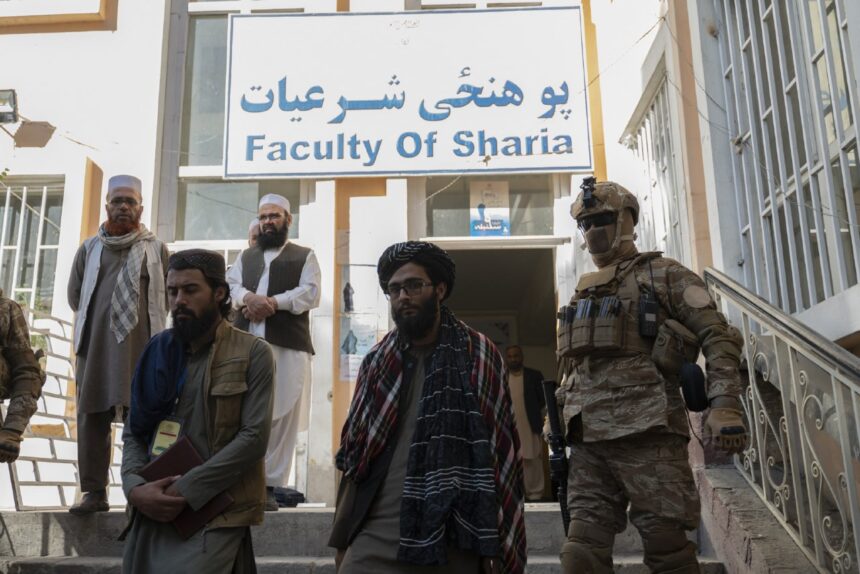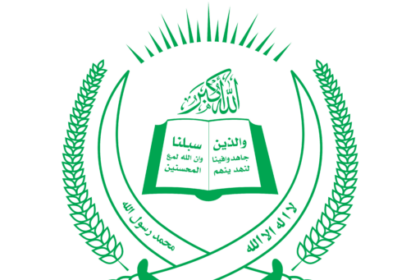RASC News Agency: In a deeply concerning escalation of discriminatory policies, the Taliban regime has reportedly dismissed a substantial number of Hazara and Shia professors from multiple faculties at Bamiyan University a move that has triggered a wave of outrage, fear, and condemnation from academic circles and civil society across Afghanistan and beyond. Local sources confirm that the dismissals affect a wide range of departments, including Agriculture, Geology, Social Sciences, Natural Sciences, and Education. Among those removed from their academic posts are some of the university’s most respected and experienced scholars, such as Fazel Akbari, Reza Ebrahim, Eshaq Ebrahimi, and Dr. Nasim Ahmadi. The latter, a prominent professor of Persian language and literature, announced via his personal Facebook page that he had been informed of the abrupt termination of his service ending over two decades of scholarly contribution to the institution.
The scale and timing of these removals have alarmed observers, who view the dismissals as part of an increasingly visible campaign of intellectual and ethnic cleansing targeting the Hazara and Shia communities. Commentators argue that the Taliban’s actions represent a deliberate attempt to erase these groups from Afghanistan’s public, academic, and administrative life further entrenching a system of apartheid governance in which only certain ethnicities and sects retain access to power, opportunity, and participation. Bamiyan University, located in the heartland of Afghanistan’s Hazara population, has historically stood as a bastion of academic perseverance and pluralism, even amidst decades of conflict. Yet since the Taliban’s return to power in August 2021, the institution like many others across the country has come under mounting ideological control. Reports of growing surveillance, ideological purges, and restrictions on academic freedom have steadily increased. The latest wave of targeted dismissals underscores the regime’s tightening grip on education and its strategy of marginalizing communities it deems undesirable.
“The dismissal of these professors is not simply administrative,” said a former faculty member, speaking to RASC News Agency on the condition of anonymity. “It’s part of a broader, sinister project aimed at silencing Hazara intellectuals, eliminating Shia voices from public discourse, and homogenizing the academic space to reflect only one narrow vision of Afghanistani identity.” The implications of these purges are deeply troubling. In addition to stripping minority communities of access to educational leadership and role models, such measures further weaken the credibility and inclusiveness of Afghanistan’s already fragile higher education system. Academics warn that the loss of skilled and diverse faculty not only diminishes the quality of instruction but also accelerates the ongoing brain drain, as persecuted intellectuals flee the country in search of safety and academic freedom.
This most recent development fits a broader pattern of targeted repression. Over the past three years, Hazaras and Shias have faced escalating threats from deadly bombings at their schools and places of worship to systematic discrimination in employment, housing, and political representation. Human rights organizations have repeatedly sounded the alarm, documenting widespread abuses including arbitrary arrests, disappearances, and extrajudicial killings. The Taliban, meanwhile, continues to deny allegations of sectarian bias, framing such dismissals as part of routine administrative restructuring. However, the consistency with which Shia and Hazara professionals are being excluded from academic, governmental, and cultural institutions paints a starkly different picture.
International response has thus far been limited to verbal condemnations and symbolic gestures. No significant pressure has been applied to halt the Taliban’s discriminatory policies or to hold the regime accountable for violations of academic and human rights. As one Bamiyan resident put it: “They’re not just firing our professors. They’re trying to erase our future.” Unless the international community mobilizes meaningful action, and unless Afghanistani civil society is empowered to resist such exclusionary policies, Afghanistan’s rich tapestry of ethnic, religious, and intellectual diversity risks being permanently dismantled. The academic purges at Bamiyan University may represent just one chapter in a much broader and darker campaign one that seeks not merely to control Afghanistan’s present, but to rewrite its future in the image of a single, imposed ideology.






